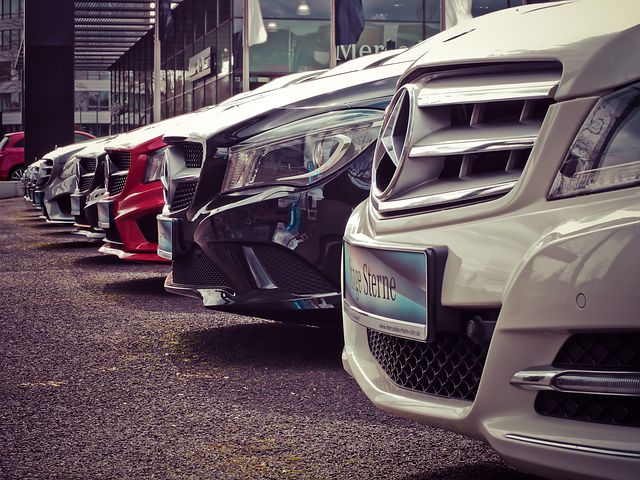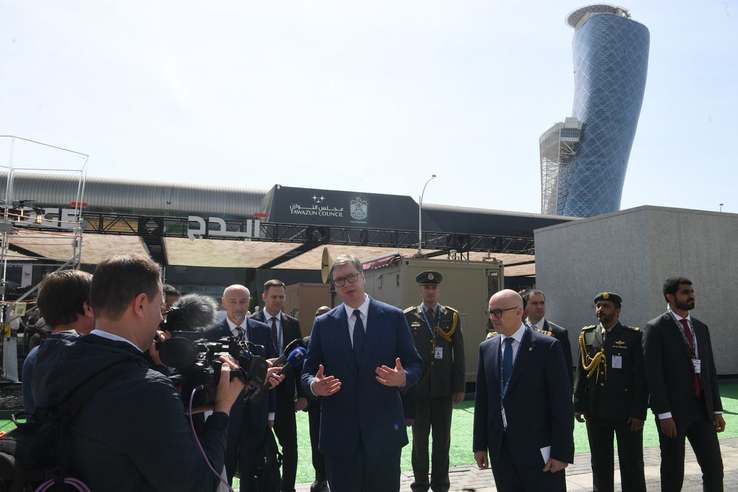
Pressure mounts – Will Western investments in Serbia stop, unless Belgrade aligns its foreign policy with Brussels?
Mercedes may set up an electric car factory in Serbia, but press reports suggest that the Germans may have some serious conditions. First, Serbia should allow Mercedes to engage in lithium mining in its territory, and secondly, Belgrade should align its foreign and security policy with the European Union. In practice, the latter means the introduction of sanctions against Russia, which Serbia has been trying to avoid since the outbreak of the war.
Talks about Mercedes’ planned electric car factory in Serbia have already begun. Besides the German car-making giant, the negotiating parties include the Serbian government, the European Bank for Reconstruction and Development (EBRD) and the leaders of Rio Tinto, a company with a major interest in lithium mining in Serbia, according to the Demostat news portal. The planned investment is around 2.5 billion euros. The cars would be fitted with lithium batteries with Rio Tinto producing the necessary ores, meaning the establishment of a lithium mine near the car factory. The portal understands that the parties are close to a final agreement.
The opening of the factory would be a huge economic step forward for Serbia, because when a Mercedes-sized player enters a market, it usually sends a positive message to other foreign companies,
Demostat points out.
The conditions
Belgrade may be very tempted by the German automaker’s offer, but the West has also set some tough conditions in return for the investment. One of these is the authorisation of lithium mining in Serbia. The lithium field in the Jadar Valley in western Serbia is considered one of the most important in Europe. Rio Tinto, the British-Australian company, announced in 2021 that it would open a mine in the area, and exploration has already commenced. However, the project has sparked fierce protests, where the locals ware joined by green activists and opposition politicians who have spoken out against the potential environmental damage caused by the extraction. Finally, the government stopped the process before last year’s elections, but Rio Tinto has not given up on lithium in Serbia. The world needs the project, Serbia needs it, Jakob Stausholm, the firm’s chief executive said, adding that they have not abandoned their plan.
The other condition is political in nature. In exchange for Western investment, Serbia is asked to align its foreign and security policy with that of the European Union, that is, to give up its position and impose sanctions against Moscow.
Since the outbreak of the war, Belgrade has repeatedly stated that it supports Ukraine’s territorial integrity, but will not take punitive measures against Russia. The latter is primarily important for Serbia’s population, as the country is highly reliant on Moscow for energy. The EU has regularly criticised Serbia for not participating in its sanctions policy, something that also has an impact on the country’s accession process.
Demostat also suggests that the investment by Mercedes could be a kind of „reward” for Serbia, if it accepts the European plan for resolving the Kosovo issue.
According to the plan, both parties are required to accept each other’s symbols and documents and agree to the other gaining membership in international organisations. Earlier, Serbia’s head of state disclosed that Western leaders had practically issued an ultimatum: if Serbia fails to cooperate in implementing the plan, it can forget about its accession aspirations and bid farewell to all Western investments. On the other hand, it it cooperates, it will be „rewarded” with economic aid and a series of investments.

Photo: Serbia’s president
Negotiations have reached a serious stage, according to the Serb portal reporting on the talks between Mercedes and Rio Tinto. They say the project will be implemented once the agreement is signed. According to unconfirmed press reports, the document may be signed at the end of February, and details may be disclosed to the public in March. The current arrangement coincides with the government’s earlier position, that Serbia will only issue a lithium mining licence, if lithium is not taken abroad as raw material, but processed in the country and marketed as part of a finished product, for instance a battery or an electric car.

